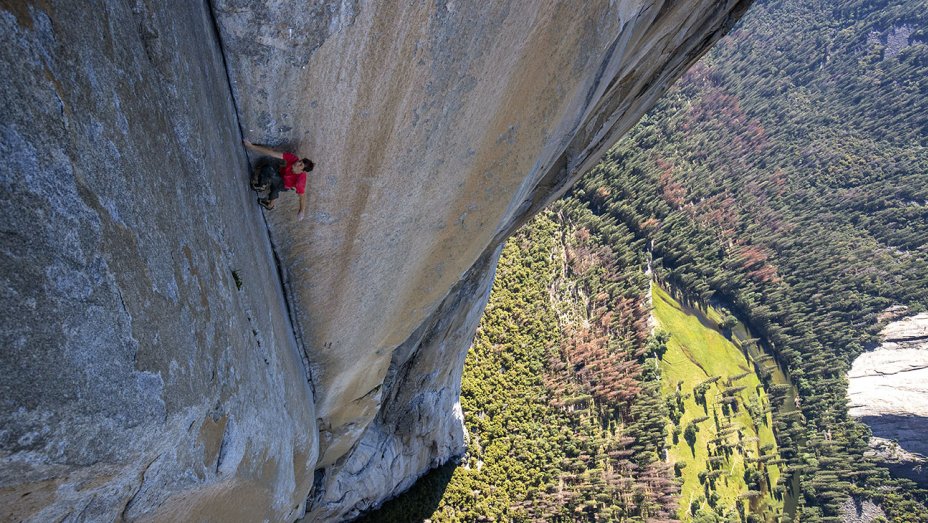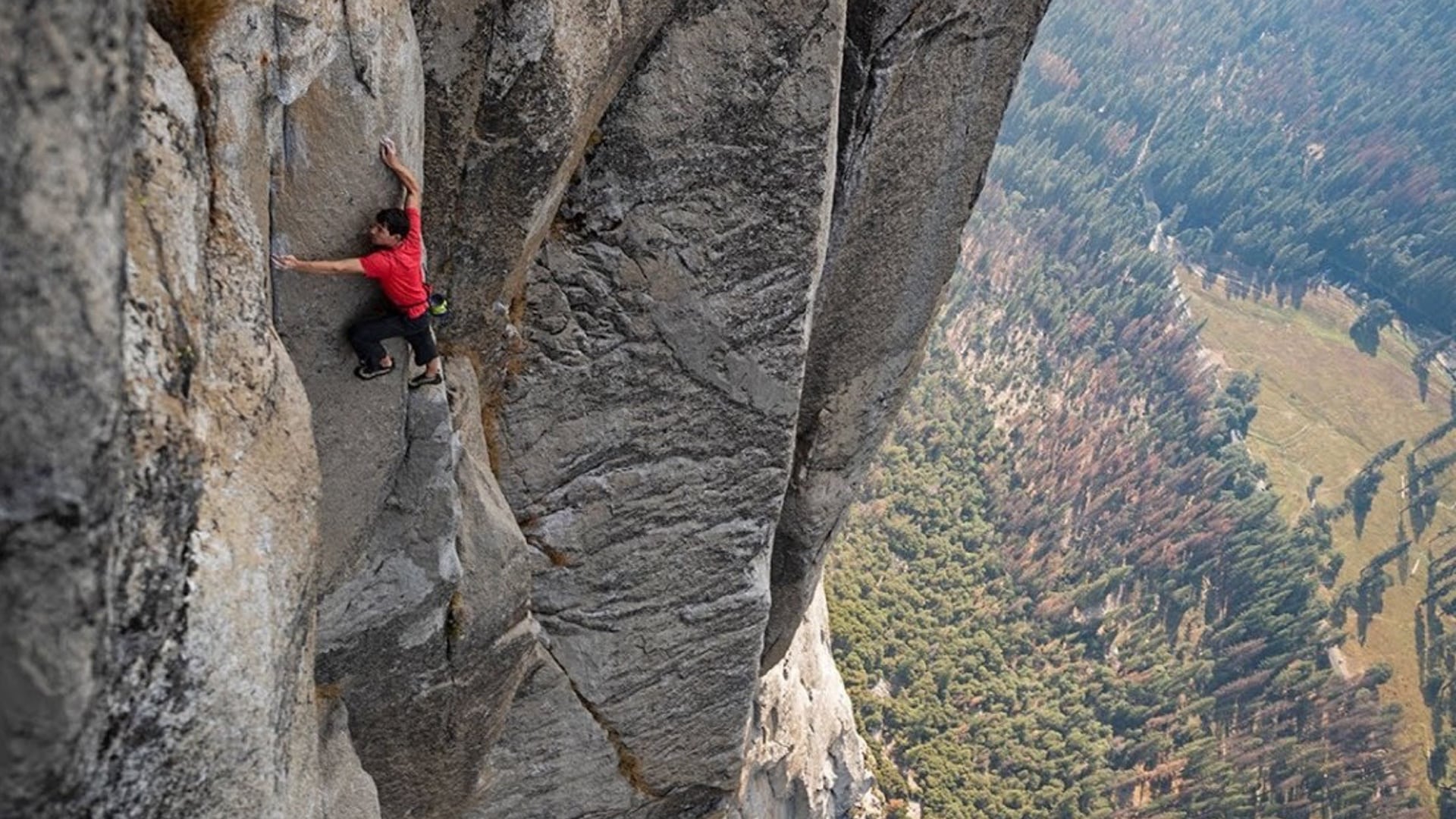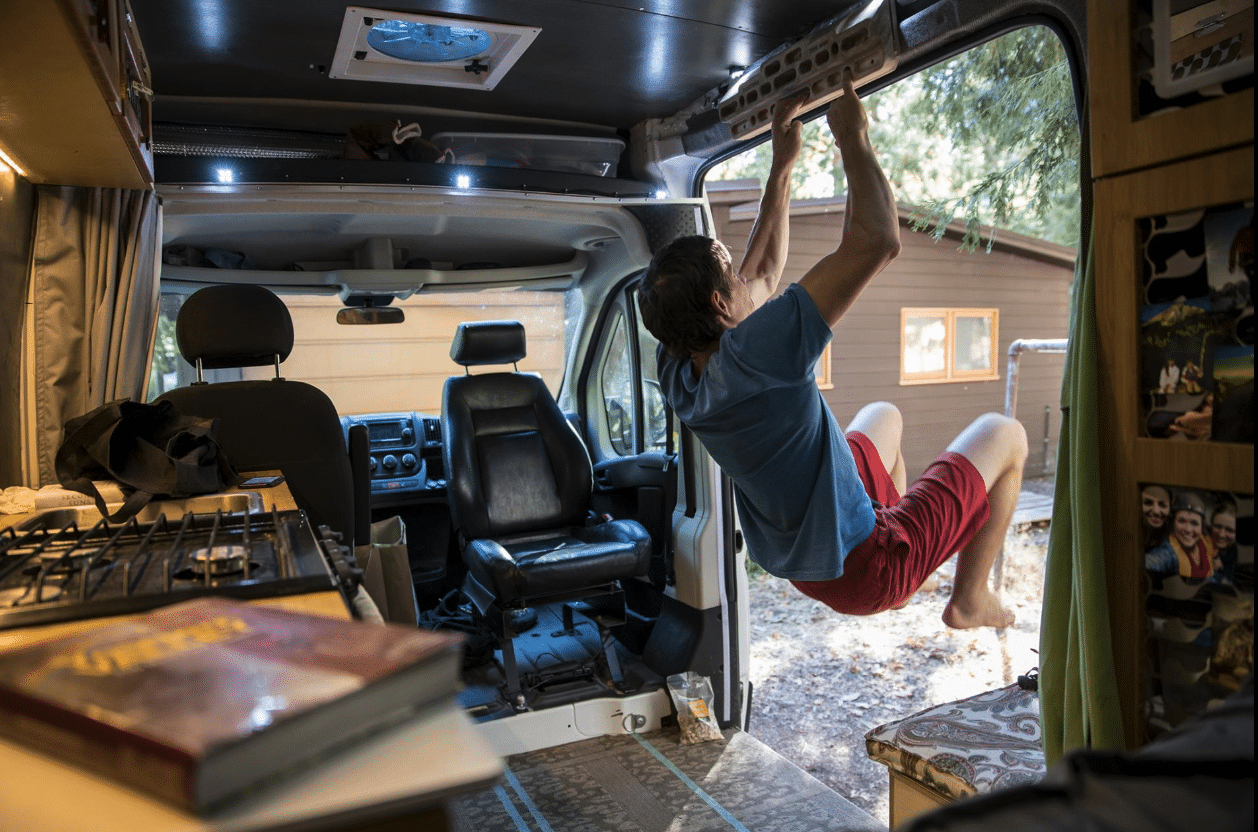I am sitting in the IMAX and my hands are sweaty. I am clinging to the edge of my seat. This is not a thriller. Not an action movie. I am watching the climber Alex Honnold climb El Capitan in ‘Free Solo’ – without any gear. Given how afraid I am of heights – a quite exhilarating experience.
“Alex Honnold’s Free Solo climb should be celebrated as one of the great athletic feats of any kind, ever.” –
The first climb of the 900m wall (3000ft) took 47 days in 1958. Alex raced to the top of the mountain in close to 4hrs – without any rope or safety.
I have been in awe of the story behind the unbelievable climb, but what left an ever bigger impression was the way a ‘free solo’ attempt has to be approached. You have to bring the right mindset. The mental toughness and focus on training and preparation resonates with me a lot. An approach I think can benefit everyone – in your every day job.
So get yourself a ticket to the fantastic documentary and let me try to explain why you can learn a thing or 2 from it.
So let’s start with the basics: Free solo climbing, or ‘soloing’ is climbing alone without any protective gear, ropes, harnesses or similar. The climber is relying entirely on their ability instead. A fall always results in serious injury or death. How dangerous this form of climbing is can easily be seen by the long list of notable accidents. 13 free solo climbers died since 1913. In the small list of people engaged in this sport – it is a huge number.
One of the main ‘stars’ in the climbing scene in general – Alex Honnold – is also the most famous free solo climber. Born in 1985 he spent almost his entire life climbing walls – an activity he loves and devotes all his time to.
As crazy as it sounds, a free solo attempt is not as daredevil as it looks. It still is unbelievable, but a free climber has to prepare. Alex probably spent 7 to 8 years in preparing for his climb. He has scaled the large granite wall in the Yosemite national park 100s of times to memorise every single step, hold and movement pattern. In a scene in the movie he rattles through each step. It shows how much he trained for his goal.
Translating this into my world, I see the benefit of preparation. The benefit of dividing a big task into its small components and perfecting them 1 by 1.
What comes next though is the difference: any climber can prepare like Alex Honnold. But the free-solo attempt makes it something different. Alex puts himself on the line. He dares it all.
Now I am not suggesting you take yourself out on a wall and climb with no rope. What I do appreciate though is the finality of his approach. Either he succeeds, or he dies. This type of mindset is hard to come by and Alex makes a great point about it in the movie: he had to train his mind – as his body was the lesser problem.
I knew exactly what to do the whole way. A lot of the handholds feel like old friends.
The whole pursuit of this dream has allowed me to live my best life, that makes me hopefully the best version of me.
There are 3 little mental techniques Alex Honnold has applied in his approach to El Capitan. He shared some insight into them in his interview with Mark Synnott, right after his climb:
Create the right mental state
Q: You didn’t even take a rest day before you free-soloed El Cap?
A: That’s part of the plan. You don’t want to be coming off bed rest. You want to be coming off light exercise. Because physically (the climb) is not that hard to execute. It’s more you have to be in exactly the right (mental) place, so I was trying to create the right place.
Look beyond the goal
Q: Did you think about anything other than rock climbing while you were going up the wall?
A: During all the easy terrain, in the middle, through the Monster and up to the Spire, I was thinking about random stuff—the whole village of people who have supported me on this. I got an email from (friend and climbing partner Conrad Anker) this morning. So I was thinking about Conrad and his whole ethos of ‘be kind, be good, be happy’. And I was also thinking in terms of life goals. This has been my biggest life goal for years. And the other one is to climb 9a—to sport climb real hard. (Editor’s note: 9a refers to one of the highest rated, most physically demanding levels of sport climbing.) So I’m halfway up the wall and thinking it’s time to focus on 9a. It’s so exciting to work on something hard.
Always be the best version of yourself
Q: What are you going to do this afternoon?
A: I’m probably going to hang board.
Q: You’re going to go do a hang board workout?
A: The whole pursuit of this dream has allowed me to live my best life, that makes me hopefully the best version of me. Just because I’ve achieved a dream doesn’t mean that I just give up on the best version of me. I want to be the guy that trains and stays fit and motivated. Just because you finish a big route doesn’t mean that you just quit.
Q: A normal person would probably take the afternoon off after they free-soloed El Cap.
A: But I’ve been trying to hang board every other day, and it’s the other day.
I am not going to turn into a climber (as I love surfing), but I have to admire the sheer force of will here. Applying the right mindset to your everyday work and approach it with a little less ‘rope’ – can possibly change your job to achieve great outcomes.
I personally am in awe of Alex Honnold and fully subscribe to his approach to having the right mindset. Failure – or certain death – is not on Alex’s mind when climbing the wall. He overcomes his fear and beats failure.
In the spirit of Alex Honnold’s climb of El Capitan – you should treat failure as inevitable and a fertile learning opportunity. It is the preparation and dedication to your work that makes the difference.



